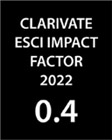Views on Space in Hungarian Development Policy and the Spatial Aspects of Second Generational Programming
DOI:
https://doi.org/10.17649/TET.19.3-4.1020Keywords:
területfejlesztés, decentralizáció, második generációs programozásAbstract
This paper examines how Hungarian spatial development policy has evolved with respect to its views on space, and how this can be reconciled with the changes in economic processes. Hungarian spatial development policy stems from the partial critique of Socialist spatial planning, which put into practice discriminatory policies favouring towns and industrial development with a special emphasis on militarization. Post-transformation is still characterised by an excess of recentralization, which is evident from current development documents.
In order for the new second generational planning to be successful, we must take into account EU reforms and the defining influence of the global economy. Territorial reforms must take place, but they must be undertaken with an eye for effectiveness and democratic accountability.
Downloads
Published
How to Cite
Issue
Section
License
Authors wishing to publish in the journal accept the terms and conditions detailed in the LICENSING TERMS.






